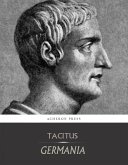Tacitus' 'Germania' is a fascinating ethnographic study that explores the customs, culture, and warfare of the Germanic tribes. Written in a concise and vivid style, the book provides valuable insights into the practices and beliefs of the ancient Germanic people. Tacitus employs a mixture of historical facts, anecdotal evidence, and commentary to offer a comprehensive portrait of the tribes living beyond the borders of the Roman Empire. This work serves as an important historical document that sheds light on the relationship between Rome and its northern neighbors during the 1st century AD. Tacitus' attention to detail and critical analysis of the Germanic societies make 'Germania' a significant contribution to the field of ancient history. Tacitus, a Roman historian and senator, was known for his sharp observations and meticulous research. His personal experiences and political career likely influenced his interest in studying the various peoples surrounding the Roman Empire. Tacitus' dedication to truth and accuracy is evident in 'Germania,' where he presents a balanced and nuanced portrayal of the Germanic tribes. I recommend 'Germania' to readers interested in ancient history, anthropology, and cultural studies. Tacitus' insightful analysis and engaging narrative style make this book a must-read for anyone seeking to understand the complexities of intercultural relations in the ancient world.
Dieser Download kann aus rechtlichen Gründen nur mit Rechnungsadresse in A, B, BG, CY, CZ, D, DK, EW, E, FIN, F, GR, H, IRL, I, LT, L, LR, M, NL, PL, P, R, S, SLO, SK ausgeliefert werden.





